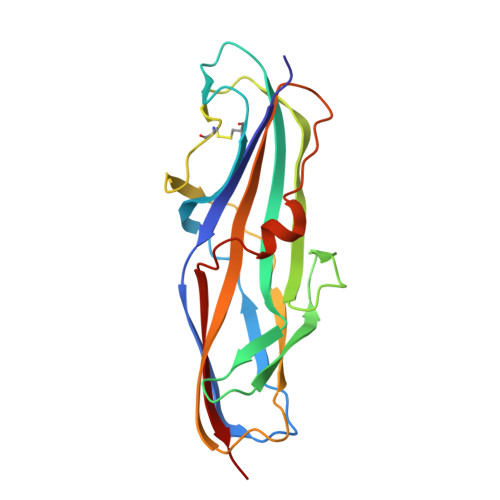Carbohydrate-Lectin Interactions: An Unexpected Contribution to Affinity.
Navarra, G., Zihlmann, P., Jakob, R.P., Stangier, K., Preston, R.C., Rabbani, S., Smiesko, M., Wagner, B., Maier, T., Ernst, B.(2017) Chembiochem 18: 539-544
- PubMed: 28076665
- DOI: https://doi.org/10.1002/cbic.201600615
- Primary Citation of Related Structures:
4Z3E, 4Z3F, 4Z3G, 4Z3H, 4Z3I, 4Z3J - PubMed Abstract:
Uropathogenic E. coli exploit PapG-II adhesin for infecting host cells of the kidney; the expression of PapG-II at the tip of bacterial pili correlates with the onset of pyelonephritis in humans, a potentially life-threatening condition. It was envisaged that blocking PapG-II (and thus bacterial adhesion) would provide a viable therapeutic alternative to conventional antibiotic treatment. In our search for potent PapG-II antagonists, we observed an increase in affinity when tetrasaccharide 1, the natural ligand of PapG-II in human kidneys, was elongated to hexasaccharide 2, even though the additional Siaα(2-3)Gal extension is not in direct contact with the lectin. ITC studies suggest that the increased affinity results from partial desolvation of nonbinding regions of the hexasaccharide; this is ultimately responsible for perturbation of the outer hydration layers. Our results are in agreement with previous observations and suggest a general mechanism for modulating carbohydrate-protein interactions based on nonbinding regions of the ligand.
- Institute of Molecular Pharmacy, Pharmacenter, University of Basel, Klingelbergstrasse 50, 4056, Basel, Switzerland.
Organizational Affiliation:


















